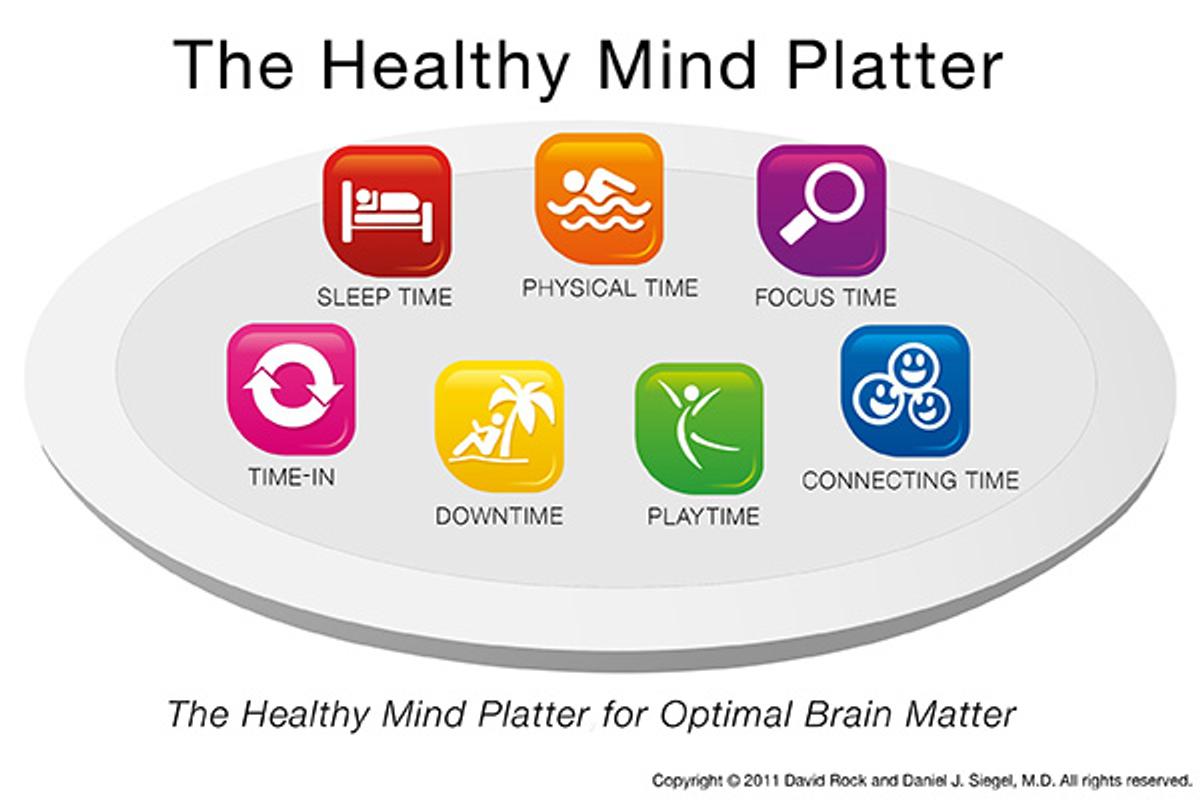Nurturing Mental Wellness: The Healthy Mind Platter
In our busy lives, it's vital to focus on physical and mental health of our children (and ourselves!). Recently, the wellbeing team loved being included in a Year 10 ‘PE/Health: Movement for Life’ class, where we had a great discussion on ways to understand and nurture our mental health. This included discussing the 'Healthy Mind Platter,' created by Dr Dan Siegel and Dr David Rock. The 'Healthy Mind Platter' suggests 7 simple activities to nurture a balanced mind. These activities to nurture healthy minds exemplifies one of our transformational educational values we embrace at MECS: Education is for the formation of the whole person - head, heart and hand.
- Sleep Time: Make sure your child gets enough sleep every night. Regular bedtime routines and quiet activities before sleeping helps. Avoid screens 1 hour before sleep.
- Physical Time: Encourage regular physical activity, such as sports or walks. This helps to decrease stress and increase a feeling of calm.
- Focus Time: Help your child concentrate by minimising distractions during activities that require attention. Declutter spaces where your child does their homework.
- Time In: Allow quiet moments for reflection, like journaling or prayer, to promote self-awareness. For the creative types, colouring or drawing may be helpful.
- Play Time: Let your child explore and have fun through unstructured play. What is fun and how play may look is unique to us all. Parents/Caregivers - Make sure you’re scheduling some Play Time for yourself too 😊
- Connecting Time: Build strong relationships with family and friends by spending quality intentional time together. E.g., Dinner time chats (discussion around the best part/trickiest part/other parts of the day), family game night, family walks etc.
- Downtime: Encourage relaxation with activities like listening to music or enjoying nature.
Including these simple activities into your family’s routine can support emotional wellbeing and resilience. Just as we nourish their bodies with healthy food and brush our teeth daily, let's prioritise mental health by providing enriching experiences and intentionally include these activities every day.
Family Idea:
- As a family, talk about healthy minds and the 7 activities.
- Share 1 activity that you identify as a personal strength and 1 activity that you find challenging (examples are helpful).
- Brainstorm a plan together on how to support each other in those activities that are tricky/harder to do, review after 2 weeks.
Resources:
Bonnie Evans
Secondary Wellbeing Coordinator, Educational & Developmental Psychologist




